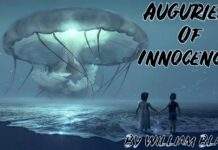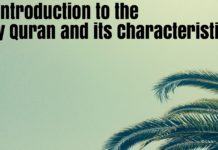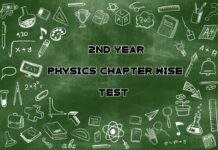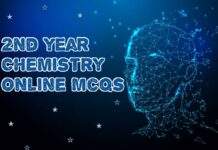When we analyse most of Thomas Hardy writing style and literary works such as especially his novels, we come to know that most of his major characters or heroes in his novels are destined to play the dominant role of fate. The fate which Hardy symbolizes as outer circumstances, coincidences, natural happenings, chances and Nature’s effects to human beings.
The word “Nature” has played an important role in shaping or reshaping one’s life. Nature is destiny or fate or luck in building or demolishing a character in Hardy‘s novels. Though all his heroes and major characters act in the normal acting of other heroes and characters of the novels of other writers or novelists yet we see; especially in Hardy‘s novels that heroes happenings, workings, events, incidents, etc. are destined or determined by his fate. One thing which is very noteworthy here is that Hardy always presents or shows the role of fate as hostile to human beings which in other words always serves as destroying or spoiling the human beings. Hardy is of the view that man is a victim of cruel clutches or shackles of fate or destiny.
Though apparently and obviously, a hero in Hardy‘s novels acts or works according to his own will yet the final decision or crucial decision is made by the fate which we already know that it acts in the opposite side or direction, and ultimately destroys a man leading to him or her in the ditches of destruction. That’s why Hardy‘s vision or philosophy of life is very different from other novelists of his contemporaries or English Literature. As Hardy always presents or shows nature or fate or destiny hostile to human beings and on the basis of these reasons he always shows the darker side of human life and is rightly called as a pessimist.
We also observe that a struggle between man and indifferent fate goes on in Hardy‘s interpretation of the human situation. Man in Hardy‘s books is bound against the impersonal forces while his characters themselves are not aware of these forces. Henchard is overwhelmed by his hate of warfare; Bathsheba thinks Troy to be the author of her misfortunes. In Hardy‘s viewpoint, both Bathsheba and Henchord are under a delusion. Those whom they think to be their enemies are themselves victims or puppets in the hands of Fate. Fate is ultimately responsible for their disputes or quarrels and they act so because they are destined to do so. Hardy‘s most prominent characters are divided into the forces of evil and good. All of them try for getting happiness; but whereas Eustasia or Fitzpiers or Arabella, strives for their selfish passions. Gabriel, Tess and Giles are ready to sacrifice their happiness to ensure the happiness of other people.
Hardy is also of the views that the work or concern of those characters which is wicked one, yet they are far more to be pitied than to be blamed ‘e.g. Henchard seems faulty, violent, vindictive and a man of uncontrolled passions because he sells his wife in a fair and willfully conceals from Elizabeth Jane the news of father’s arrival, lest she should wish to leave him, he acts in such a way that he seems to be the master or architect of his own misfortunes as an orthodox moralist would feel so. But Hardy‘s handling of Henchard is not so because he takes him as a pathetic figure born with an ill-luck personality but with a pure longing to do right, tortured by remorse when he does wrong, and is always defeated by some unlucky stroke or fate.
As far as the case of attractive, charming and good looking Eustacia in the “Return of the Native” is concerned, she also brings her destruction from her fight for her happiness, Hardy does not want her condemn for struggling hard in order to get a such sort of life in which she can live happily according to her own wishes and aspirations. She has no wish or desire to make other people unhappy; she is compelled or forced by the pressure of her nature and she sets aside everything which creates hindrances against her. Actually, fate is her enemy, as it is that of the other people around her in Hardy‘s novels that fate plays its role in several different forms.
Sometimes, it serves as a natural force, shaping and reshaping one’s life e.g. Henchard‘s plans for making himself wealthy are destroyed by a bad harvest because here we see that fate comes in the shape of weather. But sometimes it falls as an innate weakness of characters which can be exemplified in the case of Tide‘s life which is ruined because he has been endowed at birth, though no wish of his own jet overwhelming pressure of sexual power which he cannot control and which ruins him. Mostly fate also appears in two colours or guises – one is chance and other is love.
It is “chance” which becomes more inevitable or essential in some cases than any other factor of natural happening or event or incident. There is no doubt that chance also plays its role in some certain situations in the novels of other novelists but Hardy’s case is absolutely different. If we condemn his use of chance then it is to be misunderstood by Hardy‘s view of life because we see a war going on between a man and destiny. Destiny is an inscrutable force; we do not understand its nature or its intentions. We can not predict what it will do. The working force of destiny shows itself in the shape of unexpected blows of chance.
To prove it, we can have the examples from his famous novel of “The Return of the Natives” in which we see that Mrs. Yeobright pays a visit to her son for a reconciliation but the visit takes place at that time when by an unlucky combination of circumstances, Eustacia cannot admit her. As a result, Mrs. Yeobright goes away to die. Hardy does not end the story at this sadly but he here aims at showing that Mrs. Yeobright and Eustacia in their struggle for happiness, are alike up against the process of fate which takes no account of their feelings and may therefore make a move. but their efforts become futile. This accident is really an expression of the nature of fate, as Mrs. Yeobright’s wish to make up her quarrel with her son is an expression of her nature.So, it is also observed in Hardy‘s novel that man is working to one end and Destiny to another. It is destiny which decides what will happen. Man cannot modify the will of destiny.
Sometimes, past action of one’s character also plays an important role in the plot construction of the novels such as A pair of Blue Eyes, Far from the Madding Crowd, “The Return of the Native”, The Mayor of Casterbridge and Tess. Though this technique was very common in the writings of the novelists of that period yet Hardy gave it more greater meanings because by doing so, he could convey how the fate of his characters was pre-determined by the forces hidden from them. The actions of the past may be dead for the characters but in spite of this, they could not escape from their consequences.
Actually, in Hardy‘s novels, these actions of the past became an instrument in the hands of destiny and destiny used this instrument against them as a force of indifference to their feelings. In addition to this, these past actions were connected with love in which Hardy also incarnates fate. The element of love runs in all the stories of Hardy‘s novels. Love is the predominating motive which actuates his characters. The flow of desires runs within the characters Jude desires for learning; Swithin is desirous of having knowledge of astronomy. Very soon, we see that Swithin‘s story turns into a love story because his intellectual ambitions are absorbed solely in his passion for Sue.
Hardy thinks love as blind, irresistible power, seizing on human beings whether they will or not; in the starting, it allures its wake. It can be exemplified from the novels of The Trumpet – Major and Far from the Madding Crowd, when love does achieve a happy fulfillment, it is shadowed with sadness. About the word “Happiness”, Hardy himself states that it “is an occasional episode in a general drama of pain”. He does not consider life to be a boon. One may strive for the betterment of one’s soul, but only as some alleviation of unavoidable suffering.
Now, it can be said vehementally and forcefully that Hardy‘s conception of life is basically tragic: the conflict is one in which there is only the remotest chance of escape, so heavily are the scales weighted by man’s luck of foresight, his inability to subdue his own insubordinate nature, and the checks and snares placed in his path by a mysterious- spiteful power. Hardy keeps this black mood of despair till the end. A fine tragedy, The Mayor of Casterbidge, suffers from the tampering with the probabilities. Tess is read like a determined attempt to prove the supremacy of a hostile and active fate or good of evil. In Jude the Obscure, Hardy piles up the agony to such an extent that it excites horror and defeats the aim of tragedy.
Hardy always sees man in the grip of hostile forces of nature which act in the shape of chance and serve as the deciding factor. He is also of the views that character is destiny to the conception of an immanent will. This is that power which pervades and controls all the things but is unconscious of any purpose.
It is also rightly observed that Hardy had a grudge against the universe which he could not throw off. It is also seemed that he had a feeling of resentment against injustices and wanton cruelty of which he found man to be the victim. Hardy had a firm belief that there was an evil power in the universe which always ruled in the universe, rejecting every effort of man to better his fortune or to find happiness. He did not have benevolent providence: The mishaps, coincidences, inverted plots and every happening turn out to be unlucky and a stroke of good luck or fortune never occurs but it is instantly reversed in a stroke of savage derision. All this was his assessment of the average life of mankind and all this also, represented the infernal malice which ruled over the world.
Hardy holds a view firmly that gods always reduced human possibilities to a minimum and any response to these resulted in remorse and despair. The good in man is confronted by evil which seems to be Omnipotent. Further, Hardy also believed in satisfying people’s desire for the uncommon in human experience but he believed that the uncommonness should be in the events, not in the characters;
“and the writer’s art lies in shaping that uncommonness while disguising its unlikelihood, if it be unlikely.”
Though all other major tragedies of Hardy are unique and superb in their presenting Hardy‘s vision of life but his famous novel of “The Return of the Native” illustrates Hardy’s disbelief in free will and his view that man is the helpless. plaything of invisible powers which are indifferent and hostile. He also presents in this novel that every assertion of an individual will end in defeat. A character who is destined to disaster is emitted with a series of accidents and coincidences. Any ray of hope of a happy conclusion for the principal characters as Clym Yeobright, his mother, his wife and Wildeve are frustrated or turned into tragic end.
In the novel of “The Mayor of Casterbridge” Hardy deals in the different way and here a man is responsible for his disaster through his own defects and shortcomings. Henchard in The Mayor of Casterbridge suffers from the pains and anguish of defeat because of his own impulses, rashness and obstinacy. But even here chance and fatal coincidence play their important role and term this book as “the machinery contrived by the gods” for defeating human purposes. However, here Hardy also believes that he had presented a man whose egotism and stubbornness were the sole agents of his destruction. Henchard is a man of excessive self-confidence.
Hardy‘s fatalism in other words, is simply transferred from outside to inside. Here, we see that instead of implying the external circumstances, he weighs the individual himself. Henchard is a man who cannot master his insubordinate temperament, though he has extraordinary qualities and abilities yet there is certainly an uncontrollable devil in him which works in the inner operational workings of his mind, heart and soul. Things are always in his opposite direction, and wait for destroying him.
His temperament alone. cannot succeed in ruining him; the usual accidents and coincidences occur again to frustrate his wishes and aims. At the first glimpses or outer or surface analysis, it seems that there are shown many injustices because it does not become clear whom he would accuse. Whether it is nature or society but time and again, he seems to be in revolt against a malicious divinity arbitrarily inferring with man’s purposes. This very thing is very much observed in the last paragraph of Tess,
“it is said where is ‘The President of the Immortals’ who has supported the novel’s heroine.”
In Jude the Obscure: a tragedy of unfulfilled aims is presented. These are the aims which are destroyed or discarded by two distinct agencies, first, the old established social prejudices scorning and repressing a poor man’s ambitions, and secondly man’s own flaw of his character. Tess is created as an outcast for an offence committed by another; but these specific causes seem to be only devices by which the unseen malicious power has its way. So, Tess is led to a tragic end of life by both divine and the human agencies.
So, it can be said analytically that Hardy is full of grievances, and continually appears as a special pleader. As far as the matter of the tragedy of “The Mayor of Casterbridge ” is concerned which skates on Aeschylean lines because the Aeschylean spirit which Henchard submits and accepts, whereas Hardy elsewhere revolts against. Let us have another observation of the novel of Jude the Obscure where we see that the sarcasm at the end of Jude the Obscure is not aimed at anything external to man, but at Arabella’s callous indifference towards the husband whom she has ruined. Though Hardy blames much on the President of immortals for leading Tess’ life to the tragic end yet we see that the main charge in this case being that Tess is the victim of men’s misdeeds and lack of understanding. Same can be applied in the case of Henchard‘s calamities where we see that his folly is responsible for these because it was not a least result of the malice of circumstances.
So it was with most of Hardy‘s earlier characters. In the case of Jude the Obscure, we also rightly observe that Jude is no doubt punished for his excesses like Henchard; but Jude and Sue feel vaguely that there is a kind of antagonism in the things around them.
Here one thing is very worthy to note that a certain confusion and trouble or complexity arise: Hardy seems to be presenting here alternatives – at one side holding man responsible for his flaws or weakness in his character and on the other side, holding god responsible for human sufferings. Now, the question arises whether Hardy had cleared up the perplexity or not. This theory is to be found in the determinism originating in the Immanent Will of the Dynasty. In the later life of Hardy, it seemed that Hardy had been trying to define his philosophy of life, asking himself what he meant in the sacrifice of Tess and other sufferers.
It can also be said now that Hardy‘s pessimistic outlook on life was conditioned by his nature and temperament. According to him, a man’s philosophy of life is an instinctive temperamental matter. Optimism, meliorism, pessimism are only efforts to express in intellectual form and in the temperamental bias. In addition to this, there are also two other integral points of Hardy‘s outlook on life: one his sense of law and the second his sense of pity. The very first outlook gives him the conviction that a spiritual logic governs men’s lives; the Greeks called it Nemesis; but we, affected by the scientific formula, attributed it to law.
Hardys ‘sense of pity is absolutely very different and keen because after feeling the misshapes and handicaps of life, he treats with gentle tolerance the passionate misdoings of men and women; and is better disposed to the sinner than to the saint.
As we know that there is no human being in the world who is not affected by the tortures, pains, troubles and sorrows of life as every one is to some an extent is affected by these in one’s life. But Hardy‘s view about the sufferings of life, becomes very prevalent and unique or different. He practically excludes from his writings any sense of the splendor and beauty of human life. The sublimities of life are as much a matter of human experience as its depths.
For instance, Hardy sects dearly enough the hypocrisies and cruelties which work under the influence of religion; but he hardly ever dwells upon spiritual power which arises from a genuine religious emotion. The very idea of Hardy‘s outlook becomes very clear in the analysis of the novel of In The Dynasts in which Hardy projects the conflict of human “Wills” and “Necessity” on a larger scale. This is not a tragedy in the Greek or any other tradition, but a vast moving spectacle of human helplessness under the gods, setting forth his conception of an unseen power working in the universe and shaping the human drama that power determines all the activities of men, who as entities are bound to nothing. Even the greatest and most historic dwindle to the same nothingness; they believe themselves free agents, but are only puppets in its almighty grip.
Their minds and feelings and also emotions are governed by will, which shapes their motives and their actions. Nelson, Wellington, Napoleon and the rest are only machines, worked from above; their genius and epoch — shaping powers of resolution are ignored, or regarded as simply the specialized ability that makes them useful instruments of the supreme. Hardy accepts a rumored saying of Napoleon and gives it central significance:
“Some force within me, baffling mine intent,
Harries me onward, whether I will or no.
My star, my star is what’s to blame, not I.
It is unswerable.”





























